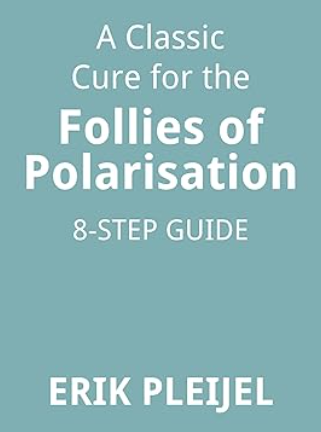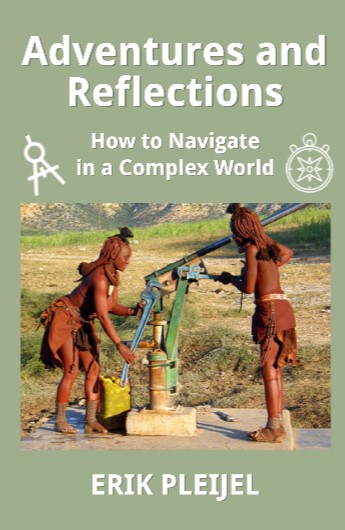
Wisdom, Justice, Moderation, Courage.
why we need
them today!



Isn’t it precisely this kind of unhinged "freedom" that creates polarisation? For example: debates where everyone talks past each other – personal attacks, stereotypes and meanness – lack of interest in other points of view – stubborn certainty and extreme views.
Isn't true freedom about being liberated from such narrow and egocentric horizons?
The follies of polarisation make it difficult to find solutions to the urgent problems plaguing our world. But what if there is a powerful antidote that we have overlooked? Maybe there are old and proven insights that can open the path to real freedom.
The purpose of this 8-step guide is to show how we can revive something almost forgotten in our time: the seven classical virtues. Faith, hope and love are powerful life forces. Together with the other virtues (wisdom, fair-mindedness, moderation, courage) they make us much better equipped to face the challenges of our time. Join a journey of discovery!
Reading time: at least 5 minutes.
One cause of polarisation is bad religion. It brings out the worst in people: fear, narrow-mindedness, selfishness, hatred, prejudice, etc. The paradox is that people claim to believe in a loving God. How does this make sense?
One possible answer is that it is a belief in conditional love. Setting conditions is an attempt to control people: "If you behave, you will be rewarded and not punished!" Taken too far, it can stifle human development and maturity.
Many churches speak of unconditional love. Such faith is not about control but trust. It is not based on reward and punishment, but on freedom and responsibility. This opens up a better way.

Why do so many people today sympathise with unscrupulous politicians who have no moral compass? Why do they rejoice when these leaders corrupt democracies and destroy vital partnerships? Why do they find ruthlessness and shamelessness so appealing? The reason may be that it creates a sense of power that is seductive and thrilling.
Why is social media so antisocial? Why are the posts so full of mockery, abuse and petty nastiness? The answer is probably quite simple: Being nasty and mean can be a pleasure.
You laugh and make fun of others because it's amusing. Schadenfreude is a source of – joy. Even the feeling of being wronged can become a wicked pleasure. It can provide an excuse to lash out in lustful anger.
Pleasant emotions = good emotions?
This is often the case, but not always. There are bad things that can feel good, for example the pleasure of being mean, the desire to judge, the sweetness of revenge, the intoxication of power).
Is there anyone among us who is completely free of this and who never deceives himself?
Hatred and contempt are alluring but deeply deceptive emotions. They are "sweet-tasting poisons". They may feel good, but they damage the soul and weaken reason. They inflate the ego and give a false sense of superiority and intelligence. This illusion affects entire societies and drags the world down to ruin.
 It's easy to get caught in a trap: We like toxic emotions because they feel pleasant. And we're reluctant to admit this mistake because it feels embarrassing.
It's easy to get caught in a trap: We like toxic emotions because they feel pleasant. And we're reluctant to admit this mistake because it feels embarrassing.
It's a bit like being stuck in a drug addiction. The key to freedom is some kind of 'detoxification' and 'rehabilitation'.
Here is the Christian approach to the problem: Rewards and threats do not work. They only create fear and make things worse. It has to be done gently and lovingly. Churches have developed rituals to deal with this. "Forgive us our trespasses," they pray, "deliver us from evil".
Following Christ means, first and foremost, learning not to hate and despise other people. This can be compared to a lifelong detoxification programme.
"Know thyself!" said the ancient Greeks. It is important to learn to distinguish between good and bad emotions. And to create healthier mindsets and better habits.
Understanding the world is a bit like doing a jigsaw puzzle.
Piecing things together is easy and fun! With stubbornness and poor judgement, you can create any image you like. You begin with the image you want to see – and adapt the pieces accordingly.
This is how conspiracy theories arise, for example. How do such ideas become popular and spread like a virus?
It's flattering to think you have a sharp mind that can see through everything. It's nice to live in the illusion of being smarter than all those "experts". Listening to other points of view interferes with that pleasant feeling of self-worth. It is embarrassing and hurtful to the ego to admit one's mistakes.
Stubborn certainty is a belief in one's own flawlessness. Our intellectual fixations become the centre of the world.
This is a profound lack of freedom. If we are to be free, we need a different centre of life. A faith based on trust can disrupt our self-centredness in a healthy way. It gives us the courage to admit that we can sometimes be wrong.
The realisation that one can be wrong is not a weakness but a strength. It is the basis for critical thinking and good judgement.
Faith and reason are often at odds, but they don't have to be. They can also work together. In symbolic terms: Jerusalem can form an alliance with Athens.
In the polarised debate, many people spout whatever comes to mind. They call it 'free thinking'.
The philosopher and public educator Alf Ahlberg argued that free thinking is something completely different. He wrote:
There is one thing that can broaden our limited horizons and that is classical education. (I am referring to what the Germans call Bildung, a broader term that emphasises personal growth). This kind of education can mean, for example, getting to know other eras by studying history. Humanity's collective experience is a huge treasure trove of knowledge. It can also mean taking an interest in other cultures and countries.
Read - slowly - with reflection.
The art of expanding your horizons.
We need more antidotes to polarisation. Yoda in Star Wars said:
Of course it is important to be able to feel fear and anger. It could be a matter of survival. Anger can be an important driving force in some situations. But there is a risk.
Courage means not allowing fear to rule over reason. It is about keeping a cool head in order to see more clearly.
Justice (or fair-mindedness) is about resisting the temptations of power. "Those who have power can do whatever they want" – this is a thrilling fantasy that feeds all sorts of twisted ideas, both among leaders and ordinary people.
Hope (in the Christian sense) is an inner force that is "not of this world". It is independent of the ups and downs of life. It is a source of strength even when the future looks bleak.
Solving the problems of our time requires practical wisdom, common sense and good judgement. The polarised debate undermines this. This is because many people are drawn to extremes and hold unbalanced views.
Practical wisdom, according to Aristotle, is related to moderation. We often need to find the golden mean and not go too far in either direction. In decision-making situations, it is important not to overreact or underreact.
Sometimes we need to take a clear stand on an issue. But very often we have to find the right balance between two opposing poles. For example:
Idealism and realism.
Unity and diversity.
Collectivism and individualism.
Many are stuck in one position or another. Without inner freedom there is no healthy balance. And without balance there is no practical wisdom.
The public debate is often characterised by political correctness and political incorrectness.
Politically correct means being respectful but not sincere. It easily leads to hypocrisy.
Politically incorrect means saying what you think without showing respect. It easily leads to bullying.
If you have inner freedom, you are not stuck in one position or the other. You can be both truthful and considerate.
It is possible to have two opposing ideas in the mind at the same time! Integration means bringing together different aspects of ourselves into a coherent whole. It is also about being able to understand different and opposite perspectives of the world.
Our world needs more people who choose the path to integration.
 to you if you go the extra mile to spread the word! The more people who receive a reading tip, the greater the impact!
to you if you go the extra mile to spread the word! The more people who receive a reading tip, the greater the impact!








Texts by Erik Pleijel, published on this website, are licensed under CC BY-NC-ND 4.0 Cartoon boy: VectorStock; Sloth: FriendlyStock; Cartoon priest: Copyright Brad Fitzpatrick; Other illustrations: CC0 Erik Pleijel.